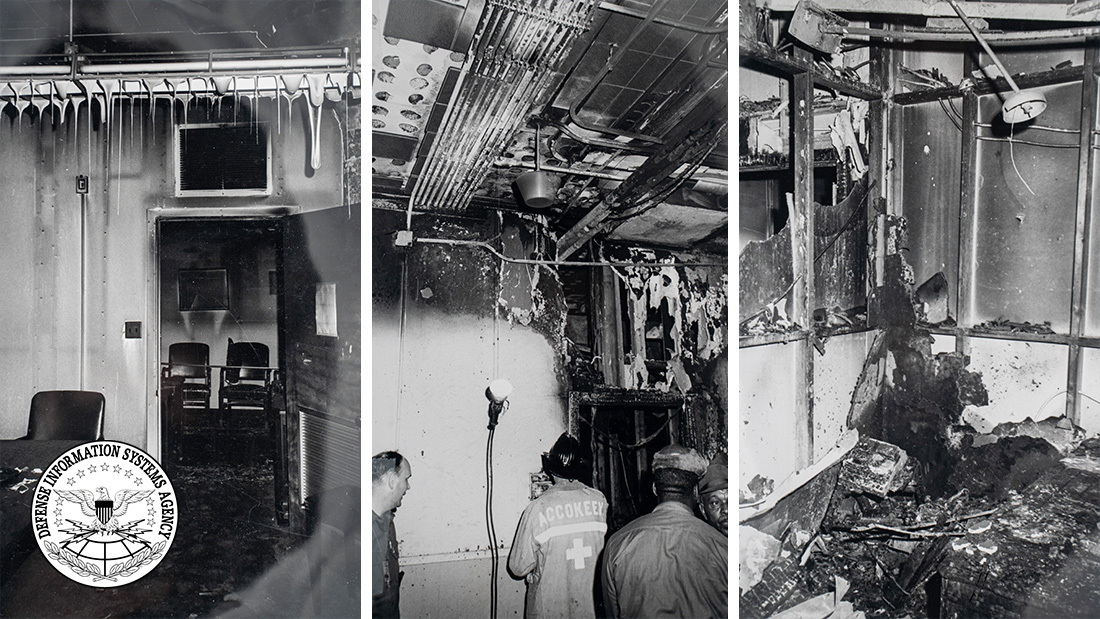-and-
In 1968, fire tore through the Defense Communications Agency, melting ceilings, destroying critical equipment, and putting their mission to the test.
Source: Defense Information Safety Agency (via LinkedIn)
By DISA Historian Anne Armstrong
Photo: Courtesy
The late 1960s were a turbulent time in America. Civil unrest rocked major cities like Los Angeles, Detroit and Newark from 1965 to 1969. On April 4, 1968, the assassination of Martin Luther King Jr. ignited further chaos, with Washington, D.C., at the epicenter. Fires consumed blocks of the nation’s capital, the National Guard enforced a curfew, and .50 caliber machine guns stood ready on the steps of the Capitol.
Just months before those historic riots, fire had already left its mark on what was then the Defense Communications Agency. Though unrelated to the unrest, the flames that tore through DCA’s headquarters in Arlington, Virginia, had significant consequences for our mission.
Founded in 1960, DCA had quickly outgrown its original location at RFK Stadium near the D.C. National Guard Armory and moved to the Navy Department Service Center in Arlington, where the Three Sister Radio Towers stood years before. By 1968, our workforce was spread across multiple buildings, with the nerve center — Building 12 — housing DCA Headquarters offices, transmitter rooms, mechanical rooms and the major mainframes of the communications equipment.
In the early morning of Jan. 19, 1968, a passerby spotted smoke pouring from an upper floor of Building 12 and alerted security. Within minutes, fire raged through the fourth floor, consuming offices, melting ceilings and destroying nearly $1 million worth of equipment in today’s value. Firefighters arrived just 16 minutes after the alarm was raised, but the damage was done.
A month later, the fire marshal’s report pointed to an all-too-common culprit: either a coffee hot plate or a careless smoker near the break area. A small oversight had led to massive destruction.
One lesson from that fire remains timeless: attention to the smallest details can prevent the greatest disasters. The fire marshal’s dry recommendation still echoes today — “Coffee makers, hot plates and similar equipment should not be left on in unattended areas.”
If the fire was an ominous prelude to the riots that would soon engulf D.C., it was also a defining moment for DCA. Instead of letting it cripple operations, it was rebuilt, strengthened safeguards and pressed forward with their mission — streamlining and securing communications for the U.S. military.
“At DISA, resilience is in our DNA. Then and now, we rise, adapt and continue the mission,” said one DISA spokesperson.





